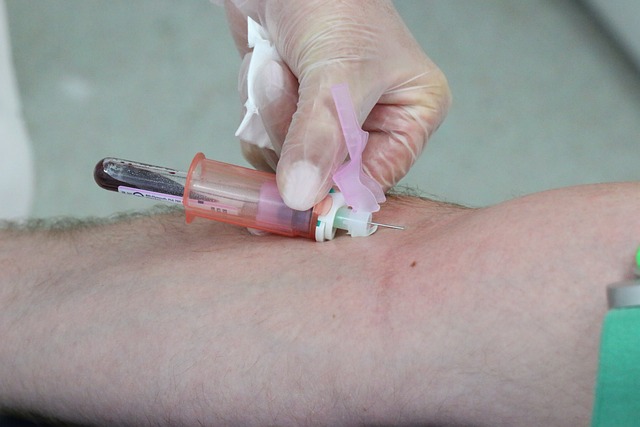The UK General Health Blood Test is a simple yet powerful tool for managing cholesterol levels and heart health. By measuring LDL ('bad') cholesterol, HDL ('good') cholesterol, and triglycerides, healthcare professionals can assess cardiovascular risk factors such as heart disease and stroke. Optimizing cholesterol levels involves fasting before the test and adhering to gender-specific targets: HDL above 60 mg/dL, LDL below 100 mg/dL, and total cholesterol under 200 mg/dL. Based on these results, healthcare providers guide patients towards making informed lifestyle changes or consider medical treatments for improved heart health.
In today’s focus on UK general health, understanding cholesterol levels through blood tests is crucial. This comprehensive guide delves into the world of lipid profiles, explaining how these simple yet powerful tests work and what they reveal about your cardiovascular health. From knowing what to expect during a UK general health blood test to interpreting results, this article equips you with the knowledge to make informed decisions for a healthier future.
- Understanding Cholesterol and Blood Tests
- How Cholesterol Level Testing Works
- Preparing for and Interpreting Your Results
Understanding Cholesterol and Blood Tests
Cholesterol is a waxy substance found in all cells of our bodies, playing a crucial role in various bodily functions. It’s essential for building and maintaining cell membranes, producing hormones, and synthesising vitamin D. However, high levels of cholesterol, particularly low-density lipoprotein (LDL) cholesterol, can lead to health issues. This is where UK General Health Blood Tests come into play.
A blood test for cholesterol level measurement involves taking a small sample of your blood, usually from a vein in your arm. Healthcare professionals use this test to assess your cholesterol levels and determine if they’re within a healthy range. By understanding your cholesterol profile, you can make informed decisions about lifestyle changes or medical interventions to manage your cardiovascular health.
How Cholesterol Level Testing Works
Cholesterol level testing is a crucial aspect of maintaining your health, especially in the UK where general health awareness is paramount. This process involves a simple blood test that measures the amount of cholesterol present in your bloodstream. During the test, a healthcare professional will take a sample of your blood, usually from a vein in your arm, and analyze it to determine the levels of low-density lipoprotein (LDL) or ‘bad’ cholesterol, high-density lipoprotein (HDL) or ‘good’ cholesterol, and triglycerides.
The UK General Health Blood Test protocol involves assessing these lipids to provide insights into a person’s cardiovascular health risk. High LDL levels are associated with an increased risk of heart disease and stroke, whereas HDL helps protect against these conditions by transporting cholesterol back to the liver for excretion. Triglycerides, another type of fat in the blood, can also impact overall health, and elevated levels may indicate an increased risk of diabetes and cardiovascular problems.
Preparing for and Interpreting Your Results
Preparing for your UK General Health Blood Test is straightforward but important. Fasting for 10-12 hours before the test is typically recommended, as food and drink can interfere with results. Avoid fatty meals, caffeine, and alcohol during this time. On the day of your test, ensure you take any prescribed medications with water to maintain their effectiveness.
Interpreting your results involves understanding that optimal cholesterol levels vary slightly between men and women. High-density lipoprotein (HDL), often referred to as ‘good’ cholesterol, should be above 60 mg/dL for both men and women. Low-density lipoprotein (LDL) or ‘bad’ cholesterol levels should ideally be below 100 mg/dL. Total cholesterol levels are considered acceptable if they’re under 200 mg/dL. Your healthcare provider will use these readings to assess your cardiovascular health risk and recommend any lifestyle changes or treatment if necessary.
Cholesterol level testing through UK General Health blood tests is a crucial step in maintaining your cardiovascular health. By understanding cholesterol, how these tests work, and interpreting your results, you can make informed decisions to manage your heart health effectively. Regular checks, combined with a balanced diet and lifestyle adjustments, can significantly reduce the risk of heart disease. Remember, early detection through simple blood tests is key to preventing serious health issues.
